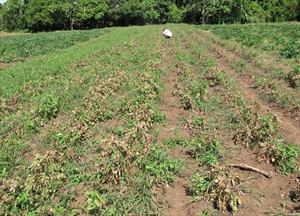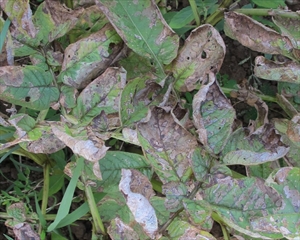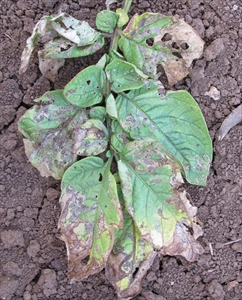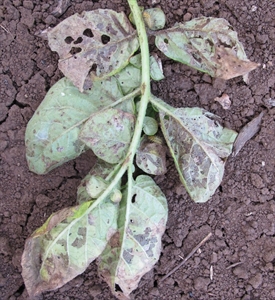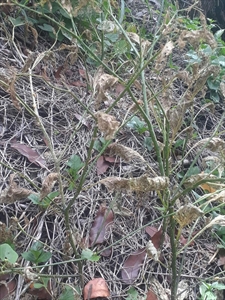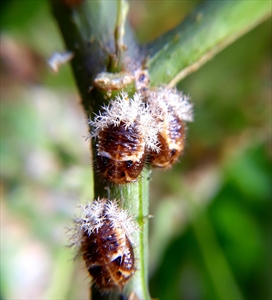- Widespread distribution. Asia, South America, Oceania. Potato and others in the family, weeds. An important pest.
- Eggs laid in batches on the underside of leaves. Whitish larvae with long dark-tipped branched spines. Adults orange with black spotted wing cases, and upper surface covered in short downy hairs.
- Both adults and larvae graze both side of the leaves.
- Natural enemies: parasitoid wasps are known, but not in the Pacific islands.
- Cultural control: avoid overlapping crop or next to other crops that are alternative hosts, e.g., eggplant; handpick; weed; collect and burn trash after harvest. Chemical control: PDPs, ash (or ash + lime in water), derris, pyrethrum, chilli, or synthetic pyrethroids.

